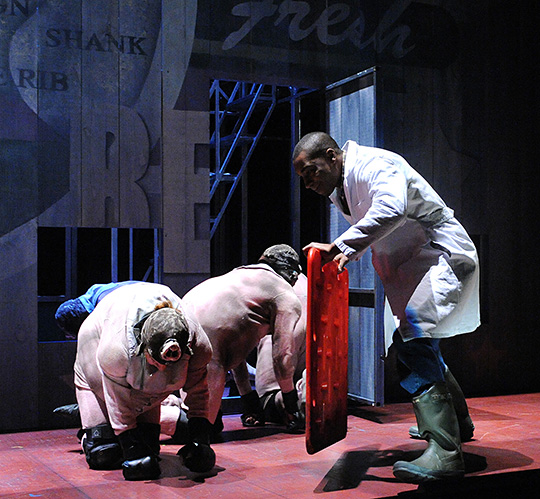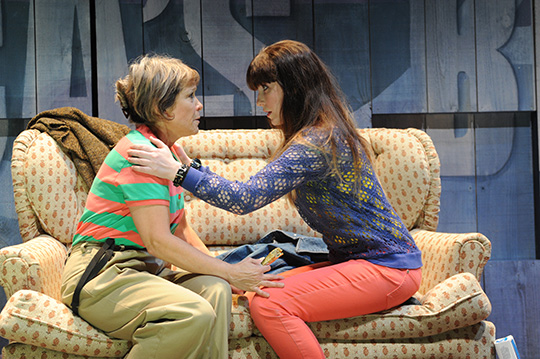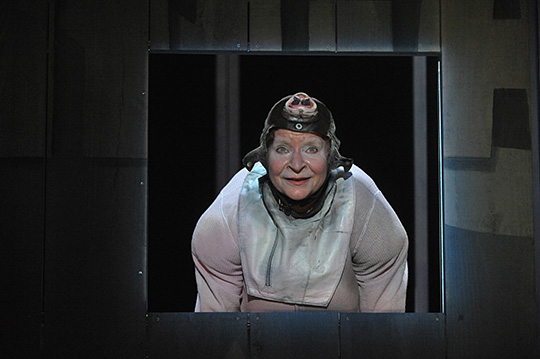 print preview
print previewback JASON GROTE | Civilization (All You Can Eat)
Artistic Director's Foreword
by Howard Shalwitz
 |
|
| Sarah Marshall & JaBen Early Woolly Mammoth Theatre Company Photo by Stan Barouh |
|
I love this play. It frightens me. And it makes me laugh.
Following the blunt logic of a B-horror film, Jason Grote depicts the emergence of a monster, Big Hog, in the countryside and his violent trek toward the city. In the final Orwellian twist, the monster beats the humans at their own game—the game of hustling for survival in the US’s unique brand of capitalism.
 |
|
| Naomi Jacobson & Casie Platt Woolly Mammoth Theatre Company Photo by Stan Barouh |
|
I directed one of the earliest productions of Civilization (All You Can Eat) at Woolly Mammoth in 2012, but already the play was looking back to the fateful summer of 2008 when John McCain picked Sarah Palin as his running mate against Barack Obama and our national politics started to look like reality television. Social media was exploding on both the right and the left. The mortgage crisis was making everybody anxious and a giant recession lurked just around the corner. If we didn’t know we were going through a watershed at the time, we surely know it now.
Grote’s desperate collection of American hustlers—everyday mothers, daughters, husbands, wives, and, of course, actors and directors—are caught up with all these new forces they barely understand. They’re trying so hard to be sophisticated and knowing, but next to Big Hog they’re just innocent and lost. The humans are holding on by a thread, while the pig has all the advantages of wonder, discovery, energy, new words, and sharp teeth. With his dazzlingly original mind, Big Hog is a truly great theatrical creation. We simultaneously root for his liberation and recoil from his brute power. In the end, we’re chastened by his wisdom.
 |
|
| Sarah Marshall Woolly Mammoth Theatre Company Photo by Stan Barouh |
|
Embedded in Civilization (All You Can Eat) is a longing for a simpler way of living, for connection to the earth and stars, for some means of engaging our fellow inhabitants of planet Earth on their own terms. Unfortunately, the apparatus of our “civilization” is piled too deep. Even Big Hog, who rises to the top of the heap, turns out to be disconnected from himself. His final wistful line—“I could have been anything”—says it all. In our way of life, everything is a compromise, nothing feels quite right. As Americans, we understand this today even better than when Jason Grote wrote it. ![]()
Howard Shalwitz was the visionary force behind the theater company Woolly Mammoth, an influential creator of provocative new theater in America for thirty-eight seasons. He won the 2014 Margo Jones Award in recognition of his lifetime commitment to new American plays and was a 2012 Distinguished Finalist for the Zelda Fichandler Award for Outstanding Regional Director. He has also directed for other leading American companies including New York Theatre Workshop, Playwrights Horizons, Arena Stage, Syracuse Stage, and Milwaukee Repertory Theater.